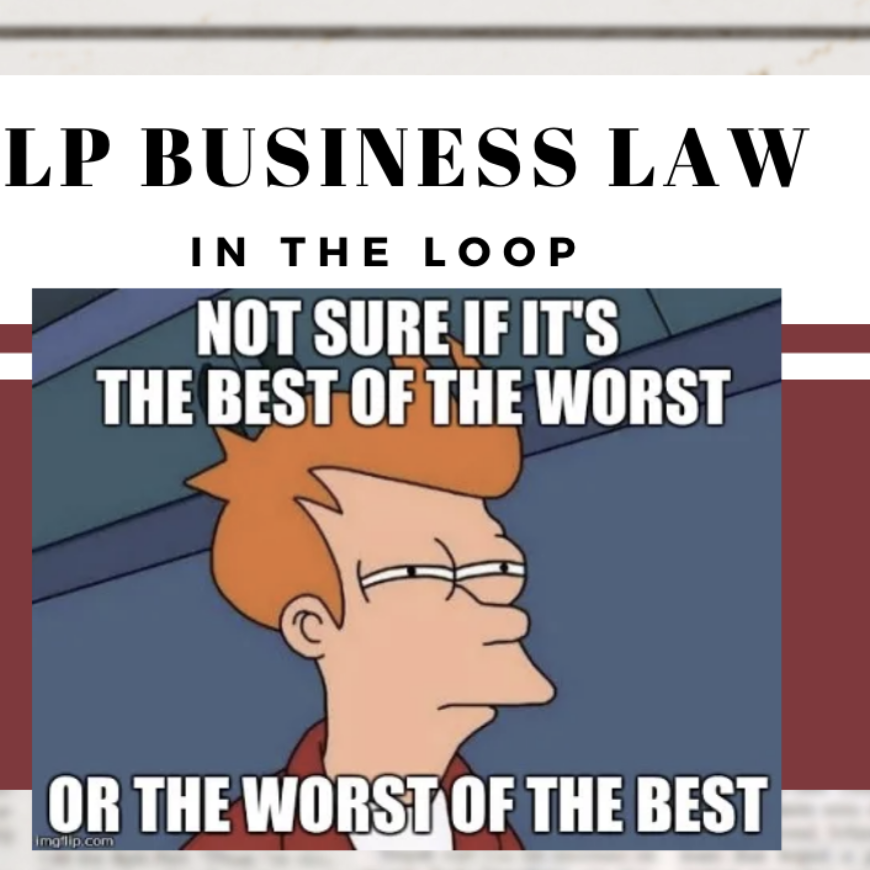Tom Stilp, JD, MBA/MM, LLM, MSC
The law represents our attempt, however imperfect and fumbling, to impose predictability in the world.
In a prior In the Loop back in April, we anticipated the intervention of the courts, stating that although most people hate lawsuits, “we’ve learned that lawsuits are a way to test the limits of government power, and implement the ‘checks and balances’ that as Americans, we all want our government to follow.” (In the Loop, “So Why, Then, Are People Panicking?” Apr. 28, 2020)
A state appeals court has recently been asked to step in and decide whether Illinois Gov. JB Pritzker has the power to indefinitely continue issuing executive orders, prohibiting landlords, many of whom say they are approaching financial ruin, from forcing apartment and rental house tenants to either pay their rent or face eviction. The landlords had sued Pritzker, arguing the Governor’s actions violated constitutional property rights, and amounted to an illegal taking of their property, by forcing them to pay for the tenants’ continued use of their property, even if the tenants, according to the landlords, took advantage of the situation by simply refusing to pay rent. (Cook County Record Retrieved At:
The landlords lost the case before the trial court in Will County, but won before the trial courts in other counties. (In the Loop, “No Checks – No Balances?” Aug. 9, 2020).
In the on-going series of “checks & balances” in our system of government, the appellate court is a check on the power of the trial courts.
And in the appellate process, the standard that gets applied determines the level of “checks & balances.” We have handled dozens of appeals over the years. We would predict that the landlords will argue the appellate court should use the “de novo” standard, which is the least deferential to the Will County trial court.
Under this standard, the appellate court is looking to a broader question of law rather than the individual case. The appellate court decision carries implications of greater magnitude across a broad range of cases. Consistency in the law is the key ingredient of predictive certainty from case to case – similar cases must be treated similarly. Again, the appellate court is concerned with the law’s attempt to impose predictability in the world.
The appellate court, therefore, has primary responsibility for maintaining a stable body of legal precedent to guide the trial courts. Errors of law are intolerable because the law itself should not vary according to which trial judge is applying that law. The appellate court assures the same law is applied in similar situations by all trial courts. When determining what the “law” is, the power of the appellate court is at its fullest. There is no hesitation of the appellate court to overturn (i.e., reverse) the lower court’s decision.
Whether the appellate court will agree with the Will County trial court that Gov. Pritzker’s powers amid a “public health emergency” are “broad” and “barely limited by law,” or whether the Governor’s actions violate constitutional rights will be answered as part of the systemic “checks & balances” in our government.
image cred: https://therealdeal.com/chicago/2020/06/26/these-landlords-are-suing-to-toss-out-pritzkers-eviction-ban/



